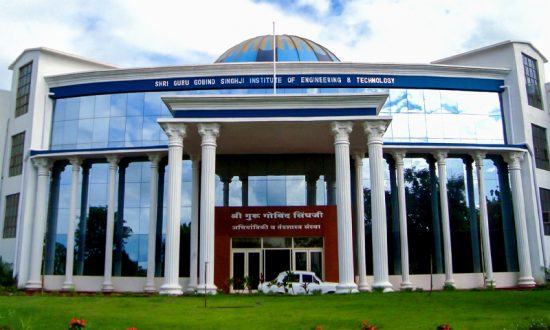The world is currently witnessing the fourth industrial revolution, better known as “Industry 4.0” where the ‘actual’ and the ‘virtual’ world are to be seamlessly connected. Industry 4.0 is focused on creating smart factories, smart industries, intelligent industries, and smart manufacturing. Giving rise to cyber-physical production systems with intelligence, Industry 4.0 has necessitated traditional manufacturing processes to undergo a huge transformation. This has led to a change in the way companies approach manufacturing and changed the requirement of skill set among the job seekers.
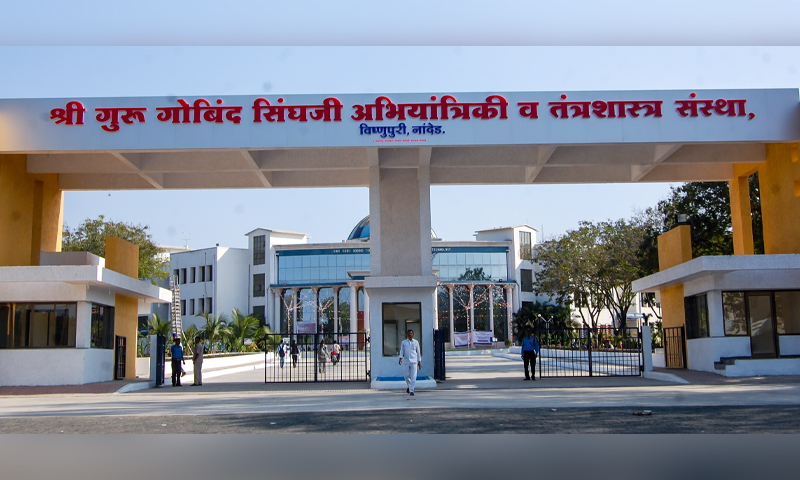
The skills which are important today will cease to be so in the future and the workforce will be expected to possess new skills in the domain of information technology, data analytics, machine vision, Internet of Things, and many more. A higher percentage of the jobs will give importance to cognitive abilities and system skills over physical abilities while defining core work-related skill sets. It is very important to understand what changes Industry 4.0 will bring in the current manufacturing setup, what the new tasks that an employee would have to do will be, how it is going to be different from what he or she has been doing and what additional skills would be required to carry out those tasks successfully.
The role of Engineering Institutes, in particular, is to create manpower that takes initiatives and be proactive with good communication skills, Problem-solving aptitude, and risk-taking. “We are trying our best to evolve a mechanism to facilitate proactive students to take up higher-level challenges and solve problems, reactive students to become proactive and inactive to transform in proactive mode”, says Dr. Y. V. Joshi, Director of Shri Guru Gobind Singhji Institute of Engineering and Technology (SGGSIET).
With the motto, “Educating Human Power for Technological Excellence”, SGGSIET was Established by the Government of Maharashtra in 1981. In 2004, the institute was granted a fully autonomous status, which was extended twice. Recently, UGC has extended SGGSIET’s autonomous status up to 2021-22. Aiming to promote sustainable industrialization for developing appropriate technologies, SGGSIET aims to disseminate knowledge by offering world-class education and contributing to the national wealth through innovation.
Spread across 46 acres in Vishnupur, Nanded, SGGSIET eco-friendly green campus is equipped with very good infrastructure facilities and equipment for overall academic development. The institute also houses a Technology Innovation and Entrepreneurship Cell (TIEC), to nurture the technical ideas and sharpen their minds towards entrepreneurship. Providing smart classrooms, laboratories, housing facilities for the students and wi-fi all over the campus, SGGSIET aims to make their campus a safe haven for its students.
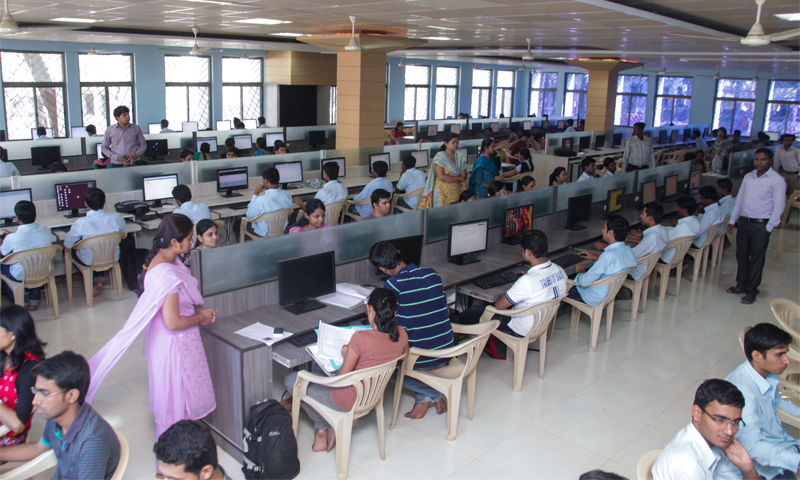
SGGSIET is one of the very few State Government aided Institutions in the state to attain the Autonomous State in 2004, which has also been extended up to 2021-22 by UGC. The institute is also accredited by NAAC with B++ grade (CGPA 2.91) in Feb 2020. “We are filing an appeal and are hopeful of getting the grade A with CGPA >3.0”, says Dr. Joshi. With special facilities for research in the areas of cutting-edge technology, the institute has a strict academic principle and adheres to the academic calendar, which has resulted in a constant good placement record since 2014. Along with industry sponsored laboratories and centres, SGGSEIT also has a Research Symposium to nurture a research attitude and motivation for higher studies among students.
A Perfect Blend of Technology and Education
Making students aware of what are the main opportunities/risks for the use of Industry 4.0 technologies, students get to attend industry personnel expert talks to gain knowledge of the latest technology used by industry. SGGSIET conducts workshops and training programs under TEQIP/Center of Excellence, to enhance the technical abilities of their staff and students.
The institute also offers Summer Internship Programs to teach the students about the recent trends and technology requirements of the industry. These internship programs especially focus on “Idea to Product”, so that students become more product-oriented, instead of just theory or research. “Also, During the final year of B.Tech, the students can join any organization or company for 4-6 months as interns, whereas M.Tech students can intern for 1 year. This is a part of their project work that gives them a chance to work on live industry projects”, adds Dr. Joshi.
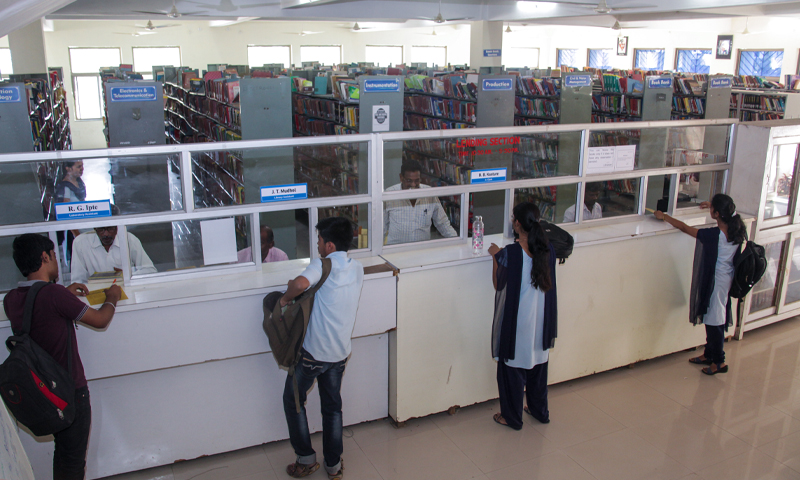
Starting a policy for Incubation for Startup, SGGSIET also promotes lateral incubation, where established organizations can open their R&D centers on campus. “We have introduced an innovative Engineering Exploration Laboratory in the curriculum of First Year to foster hunger to innovate and be creative. This has opened up the minds of young talent. They are participating in National events and winning prizes in the first year of engineering”, quips Dr. Joshi. The alumni of SGGSIET has its fair share of contribution in the development of the institute through SGGS Engineers’ Alumni Association. They conduct training sessions along with contributing as adjunct faculty too. SGGSIET also conducts Skill/Personality Development Programs with an aim to develop the students professionally, personally, and socially.
The students and faculty of SGGSIET learn through MOOC portals like NPTEL, and SWAYAM, to encourage Virtual Interactive Learning Programs among them. The students are also allowed to enroll for NPTEL courses and exams, where the credits they earn in the course is considered equivalent to the course credits given by the institute. All the classrooms of SGGSIET are equipped with projectors, PA systems, the Internet, and Smart Boards are being used for this purpose. The campus is Wi-Fi enabled and has 1288 PCs with internet connectivity. The computer laboratories are open for more than 16 hours for the students. “We have conducted 4 joint conferences and has organized 9 National and 3 International Conferences in the last 5 years,” says Dr. Joshi.
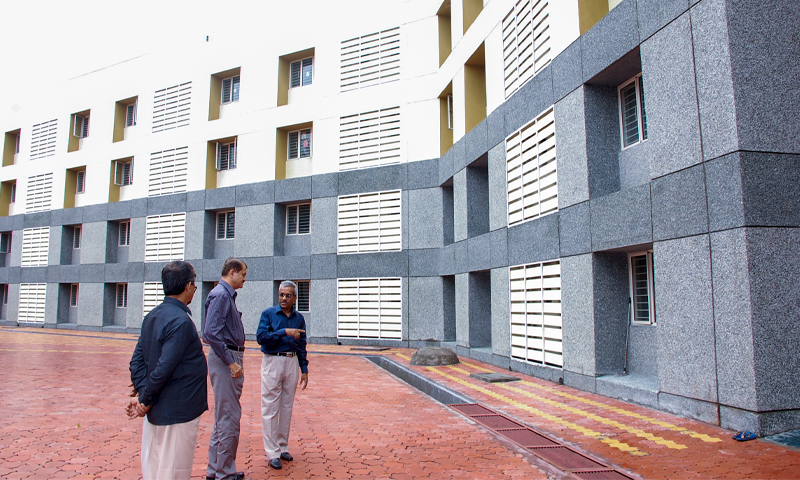
Stepping into Industry 4.0
In the last few years, institute has signed MoUs with Industries, Industry Associations, Incubation Centers, and Universities/Institutes for various collaborative activities like Emerson EPASS laboratory, Atal Incubation Centre-Rambhau Mhalgi Prabodhini, John Deere India Pvt Ltd, Visvesvaraya National Institute of Technology, Sandriver Technologies, Expert Global Solutions, and many more. “We have also set up a Patent Cell where students and faculty members are encouraged to file patents of their intellectual property. We also organize workshops for them to make them aware of patenting and IPR”, adds Dr. Joshi
SGGSIET has set up an “Innovation Laboratory”, a tinkering laboratory open for the students 24×7, where they are free to experiment. Along with this, the institute also has a “Technology Innovation and Entrepreneurship Centre” (TIEC), where potential ideas are further experimented with a prototype and incubation. The whole process is monitored by a team of students and faculty members who are interested. To encourage innovation and creativity among students, SGGSIET identifies and appoints one expert coordinator – an entrepreneur and innovator in Nanded with more than 30 years of experience for the students to interact and take their insights on their projects. “Going beyond research, the institute focuses on working together as a team for developing multi-disciplinary technical solutions and product design”, says Dr. Joshi.
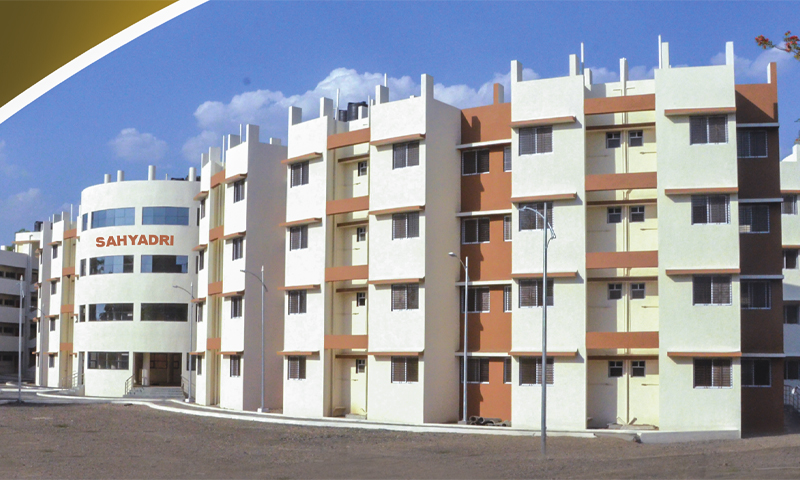
The institute carries out many activities for students to encourage innovative thinking like Pragya, a National Level Technical fest, Design Thinking Workshops, Smart India Hackathons, Robocons, Talks by Industry Experts, Workshops and Training Programs. As a result, the students have bagged many prizes and good results in various technical events. Dr. Joshi adds, “Our students also enroll and manage clubs like Robotics for Next Generation (RNXG), Institute’s Innovation Council (IIC), Voice Clubs, Bhaskaracharya Maths Club, MTrix, and Praveg.” SGGSIET had also organized an international conference on Technological Advances in Climate-Smart Agriculture and Sustainability in collaboration with CUNY-CREST Institute, The City University of New York- USA, and Institute of Global Agriculture and Technology Transfer (IGATT), Colorado, USA.
SGGSIET has MoUs with industry organizations and incubation centers like Nashik Industries Manufacturing Association (NIMA), Chamber of Marathwada Industries and Agriculture (CMIA), Marathwada Accelerator for Growth and Incubation Council (MAGIC), Atal Incubation Centre-Rambhau Mhalgi Prabodhini (AIC-RMP), Endress + Hauser Flowtec, SAI Technology USA, Theia New Consultancy LLP, Solace Cogen, John Deere Indi, LAURUS Infosystems, and Expert Global Solutions. “Many of our students, who have undergone these internships, have also got placed in big companies like Intel, TCS, Seagate, Cognizant, SocTronics, Sankalp Semiconductors, HCL, Raja Software Labs, Techprimelabs, and many more”, adds Dr. Joshi. Companies like SAI Technologies, Mentor Inc, Emerson Process Automation, Endress+Hauser have donated software, hardware and recruited our students in their organization.
Major recruiters like TATA Consultancy Services, Siemens, HCL, Reliance, Johnson Controls, Darkhorse Digital and many more, SGGSIET’s students get placed in well-known MNCs, which act as a steppingstone in their next phase of life. In the academic year 2018-2019, 252 students were recruited from SGGSIET from major MNCs.
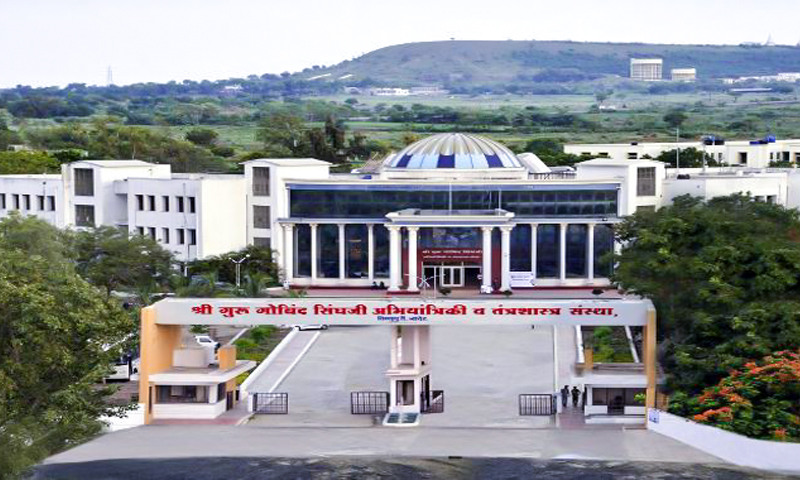
Promoting Student Development
With introduction of 3-week induction programme on Universal Human Values (Jeevan Vidya) suggested by AICTE, SGGSIET has also started common courses like Business Analytics, Project Management, English for Technical Paper Writing, and Research Methodology at IPR and PG Level for all their branches. Along with reforms in Examination procedures and co-curricular activities, the institute is providing financial support for students who are presenting papers in recognised international conferences during their course in SGGSIET. More than 50 Experienced Adjunct faculty from Industries and academia supporting strengthening of academics etc, SGGSIET also has MoUs with Industry Associations like CMIA (MAGIC), Aurangabad and NIMA, Nashik for project internships and incubation.
Paving the road ahead
SGGSIET is all prepped to face the technological advances in the coming times. With an aim to develop skilled manpower in the developing era of Industry 4.0, SGGSIET is going to develop its Robot Training Centre with the District Administration’s support. More than 1 crore has been sanctioned to set up an advanced robot training center under a special scheme of innovative projects. Building a space required for incubation, the institute is planning to allocate more space for imparting co-curricular and extracurricular activities on campus by the end of 2020.
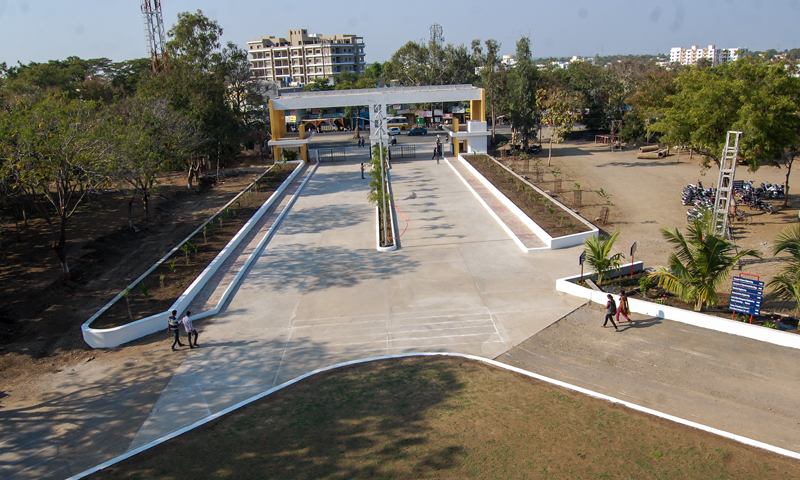
The institute is also planning to start liberal learning courses in the areas of student’s interest, along with reducing the credit requirement as per ABET guidelines in the coming academic years. Planning to inculcate project-based learning in many courses to promote kinesthetic learners, Dr. Joshi concludes, “Our students graduate with sound technical knowledge. Our institute shapes our innovative students to become sincere, honest, ethical and hardworking engineering with unmatchable communication and soft skills.”
Dr. Y.V. Joshi, Director
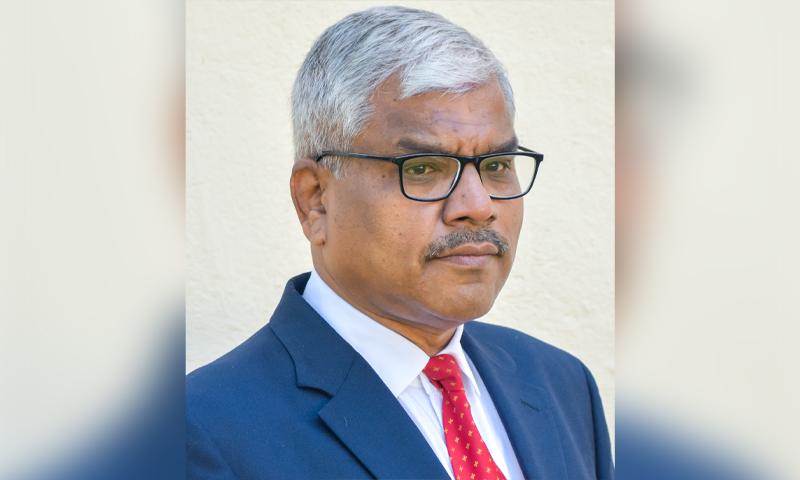
Dr. Y. V. Joshi completed Bachelor of Electronics Engineering in 1986, Masters of Electronics Engineering in 1991 (both from SGGS Institute of Engineering and Technology, Vishnupuri, Nanded) and a Ph.D. in 1998 (from IIT, Delhi). He is member of IEEE, Fellow of Institution of Engineers (India), Fellow of IETE (India) and a life member of ISTE. Before joining as Director on 23-Apr-2018, he was working as Professor of Electronics and Telecommunication Engineering at SGGS Institute of Engineering from July 2001. Prior to this he was Assistant Professor (1993 to 2001) and Lecturer (1986 to 1993) at the same department. His subjects of interest include Signals and systems, Digital Signal Processing, Adaptive Signal Processing, Modern Digital Design using Verilog, VLSI Design, and many more. Dr. Joshi has also worked as Director, Walchand College of Engineering, Sangli (a Govt aided institute) from 2009 to 2013. Dr. Joshi has so far guided 11 PhD candidates and more than 50 MTech dissertations. He published more than 40 International Journal papers and more than 50 National and international conference papers. He also visited countries like Singapore, Malaysia, Dubai, China, Hongkong, USA, UK for various academic collaborations and activities. He recently participated in LEAP programme of PMMMNMTT, MHRD at IIT Kharagpur and University of Cambridge.




